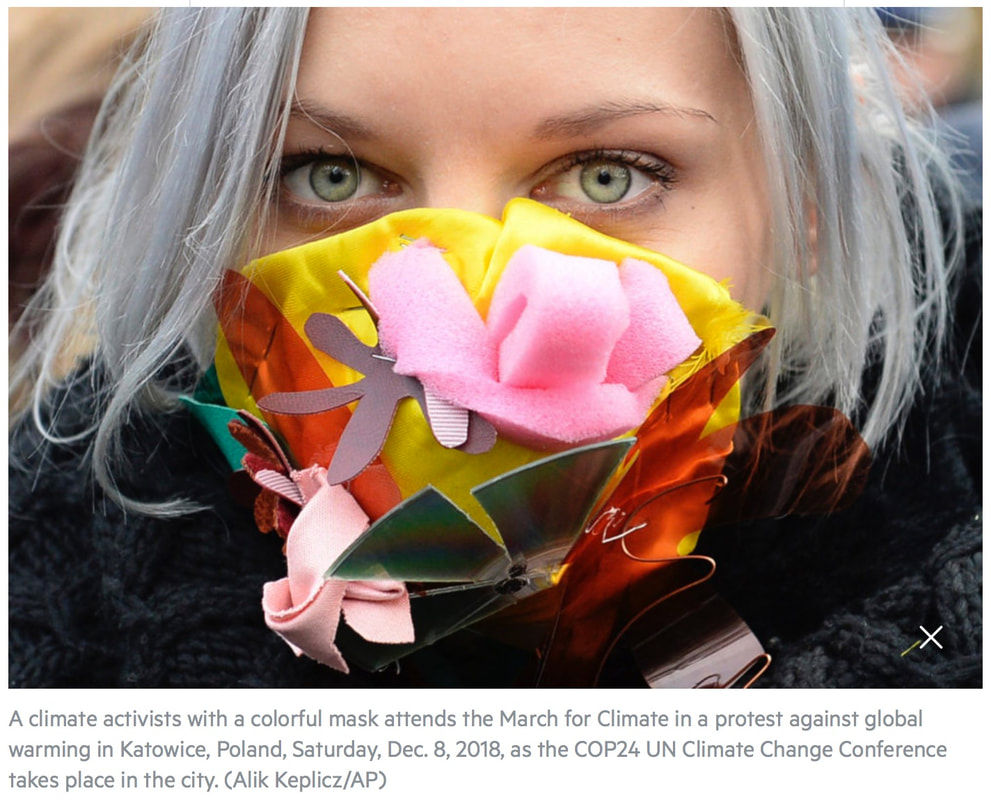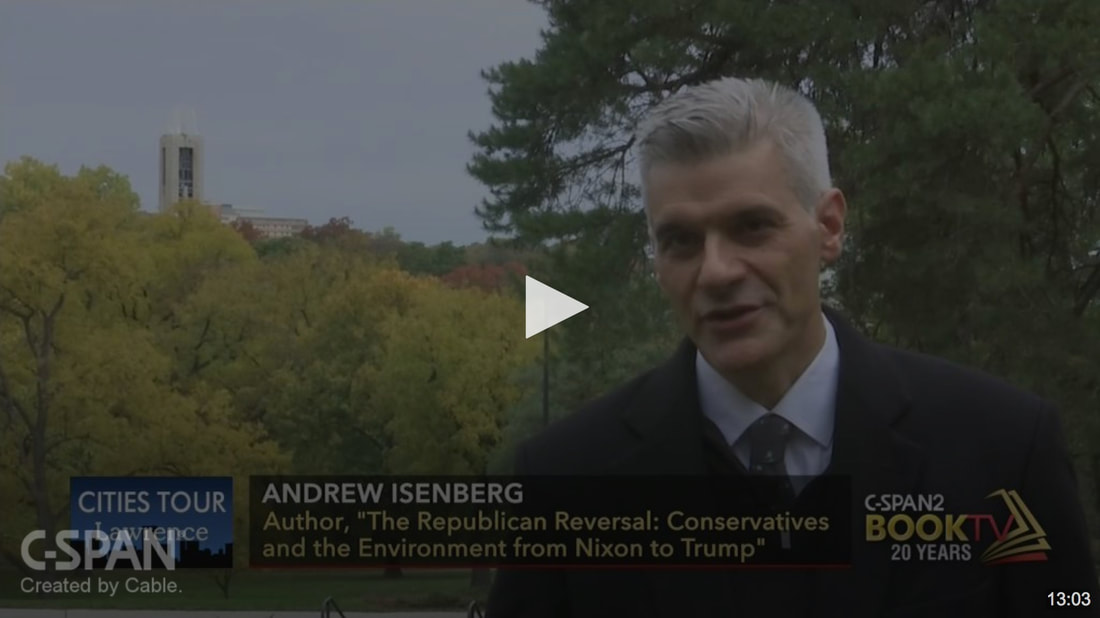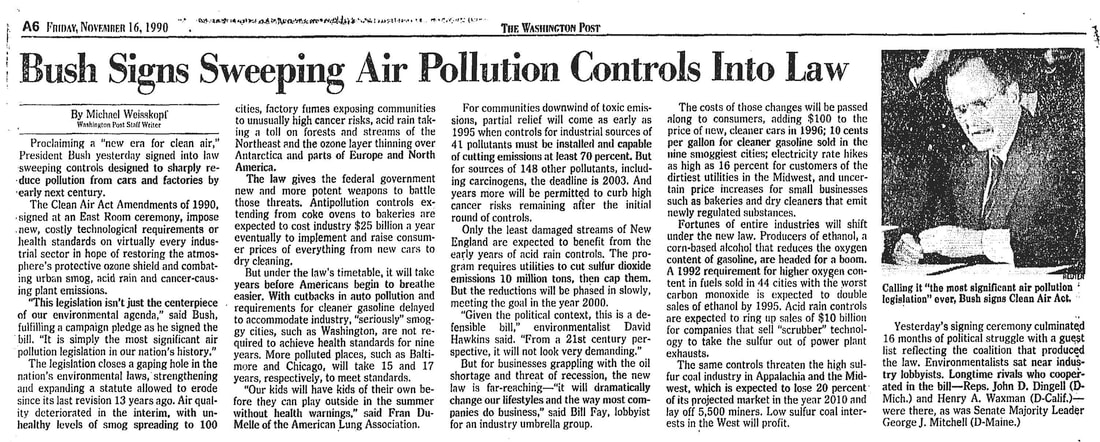|
Commentary published on WBUR's Cognoscenti on December 19. 2018.
On few issues has the Trump administration thumbed its nose at the global community more belligerently than on climate change. In November, the Trump administration released an alarming climate reportcompiled by federal agencies, and immediately dismissed its significance. When G-20 leaders meeting in Argentina wanted to adopt strong language on the need to address climate change, Trump demanded special language exempting the United States. This month, when 44 small island nation states rose at the global climate conference in Poland to urge similarly strong language acknowledging the most recent international climate report, almost all of the rest of the world rose in affirmation. But the Trump administration derailed their efforts. Much of the coverage of these events has derided Trump’s actions as emblematic of his disregard for climate science. “This is a new frontier of disavowance of science, of disdain for facts,” said William K. Reilly, who led the Environmental Protection Agency under President George H.W. Bush. But to describe this as a debate over science or facts misses something crucial. This is no longer a debate about science; it is a debate about values. And the Trump administration, for all its deceit and corruption, has been ploddingly predictable in explaining why taking action on climate change is supposedly a “bad deal for the U.S.” In Trump’s view, what is at stake is not the science of climate change, but international competitiveness, energy abundance, faith in technological innovation and American exceptionalism. This marks an under-appreciated change in the debates over climate policy. In 2001, President George W. Bush explained that he wanted a “science-based approach” to global climate change. What that meant to Bush’s allies in the fossil fuel industry was that if they wanted to advance their policy agenda, the best way to do so was to challenge climate science. That became the playbook for groups like the George C. Marshall Institute, the Competitive Enterprise Institute and the Heartland Institute. With the support of the fossil fuel industry, they spent decades attacking climate science — dogging scientists, publishing misleading reports, and trying to sway the media with disinformation campaigns. The Bush White House was notorious for line editinggovernment climate reports to emphasize uncertainties and downplay the need to address climate change. The Trump administration’s approach has been different. Although it has cut funding for climate science research, weakened scientific advisory committees, and cast doubt on climate science, it has also released a string of urgent climate studies that directly contradict its policy positions. Instead of undermining the science, Trump has largely ignored it. Consider Trump’s withdrawal from the Paris Climate Accord in June 2017. In retrospect, what is most telling about that announcement is what Trump did not say. He made almost no mention of climate science, nor did he question the reality of climate change. Instead, he based his decision to withdraw from the accord almost entirely on economic concerns and matters of international competitiveness. Trump explained that, in his view, he has to do “everything within my power to give America a level playing field and to create the economic, regulatory and tax structures that make America the most prosperous and productive country on Earth.” For him, keeping the United States ahead of China, expanding domestic energy production, and protecting jobs for coal miners come first, not future and uncertain concerns about climate change. For those who understand the gravity of scientists’ warnings about climate change, this presents an opportunity and a challenge. Rather than more urgent science or compelling facts, the debate over climate change is increasingly one about competing values and alternative visions for the future. To win the debate over climate change means swaying the public with a vision, not with facts. Americans who believe that the costs of climate action would be far less than the costs of doing nothing, who hold that there is a moral imperative to take action to protect the vulnerable, who see a more democratic future in an economy built on renewable energy technologies, and who believe that it is a mistake for the United States to cede international leadership on climate change to other nations, should challenge Trump’s values with their own. Alexandria Ocasio-Cortez’s Green New Deal offers the beginning of what can be a new progressive effort to address climate change and advance clean energy future. It hitches a vision for a clean energy future to the urgent task of addressing poverty and promoting social equality. Such work will not be easy. But, unlike the basics of climate change science, which are beyond dispute, these are policy matters about which there remains room for productive discussion and debate. C-SPAN BookTV interviewed Andrew Isenberg about The Republican Reversal during their swing through Lawrence, Kansas in October 2018. The resulting 13-minute interview, pairs Drew's interview with great historical imagery.
Op-ed by James Morton Turner and Andrew C. Isenberg George H.W. Bush, who died Friday at age 94, was more than just a former Republican president. More importantly, he was the last moderate Republican president. Nowhere is the decline of the moderate Republican tradition Bush represented more apparent than on environmental issues.
As president between 1989 and 1993, Bush represented a Republican legacy of measured support for environmental regulation. Between 1970 and 1973, Richard Nixon, who was an early patron of Bush, signed into law the National Environmental Policy Act, Clean Air Act, and Endangered Species Act, and created the Environmental Protection Agency by executive order. Ronald Reagan, whom Bush served as vice-president between 1981 and 1989, also had an early record on environmental support. As Governor of California between 1967 and 1975, Reagan expanded the state park system, killed dam and highway projects in scenic areas, and supported tough state air-quality laws. While in the White House, Reagan’s administration even led the negotiations that culminated in the Montreal Protocol of 1987, which committed the United States and other nations to an international agreement to reduce pollutants that were destroying the stratospheric ozone layer. This is not to say that Republican support for environmental regulation was always robust. A Democratic Congress had to override Nixon’s veto of the Clean Water Act in 1972. While in the White House, Reagan often pushed hard to weaken federal environmental regulations and promote economic growth. Reagan’s first secretary of the interior, James Watt, vastly expanded the federal lands and off-shore waters open to fossil fuel exploitation. Reagan’s first director of the EPA, Anne Gorsuch, shrunk the agency, weakened regulations, and slackened prosecution of corporate polluters. But during the 1988 presidential campaign, Bush described himself as “the environmental president,” and actively distanced himself from Reagan’s legacy. While Bush supported expanding fossil fuel development on public lands—including in the Arctic National Wildlife Refuge—he also pledged to pass domestic legislation addressing acid rain and to use his vaunted diplomatic skills to address global warming. Bush’s signature environmental achievement was reigning in acid rain. The Bush White House pushed vigorously for amendments to the Clean Air Act that included a novel cap-and-trade strategy, meant to reduce pollutants that caused acid rain while minimizing the costs of doing so. Detractors predicted the law would lead to a spike in electricity costs. Thanks to the law’s flexible market-based approach, which had been championed by the Bush administration, electricity costs in most states fell between 1990 and 2009. In 2010, the cost of the program was estimated to be $3 billion annually. Its annual benefits, derived mostly from reductions in asthma, heart attacks, and premature death was $108 billion due to related declines in particulate emissions. Despite the resounding success of the Clean Air Act amendments, Bush could not — or would not — follow through on his campaign pledge to meet the “greenhouse effect with the White House effect.” Between 1990, when Bush hosted an international conference on climate change in Washington, and 1992, when world leaders met in Rio de Janeiro to forge an agreement to slow global warming modeled on the Montreal Protocol, Bush hedged his commitment. Largely out of concern for the potential economic costs and uncertain benefits, the Bush White House allowed only a watered-down international agreement in Rio that did not commit the US to reducing emissions. In the twenty-first century, the measured approach of moderate Republicans like Bush has given way to a full-throated, conservative Republican repudiation of environmental regulation, which has culminated with the Trump administration. Trump has not only made little pretense of being an “environmental president,” he has called for eliminating the EPA, rolled back protections for the public lands, prioritized fossil fuel extraction, and dismissed climate change as a “hoax.” In so doing, Trump has merely echoed what an increasingly conservative Republican party, more beholden to fossil fuel interests, heedless of the concerns of scientists, and blindly committed to economic growth have been saying for years. It is hard not to look back on George H. W. Bush’s approach to environmental policy, and the tradition of moderate Republican leadership which it represented, without a sense of loss. At its core was a belief that President Bush emphasized time and time again: “our ecology and the economy are interdependent.” Although today’s Republicans are paying it little heed, the most recent U.S. climate assessment warns that failure to act on global warming will cost the U.S. economy billions of dollars in the decades to come. It is a sharp reminder that we need Republican leadership, and the bipartisan cooperation it enables, on the environment more urgently now than ever — to ensure the future of the planet, to protect human health, and, not least, to safeguard the economy. |
AuthorWrite something about yourself. No need to be fancy, just an overview. Archives
April 2020
Categories |




 RSS Feed
RSS Feed